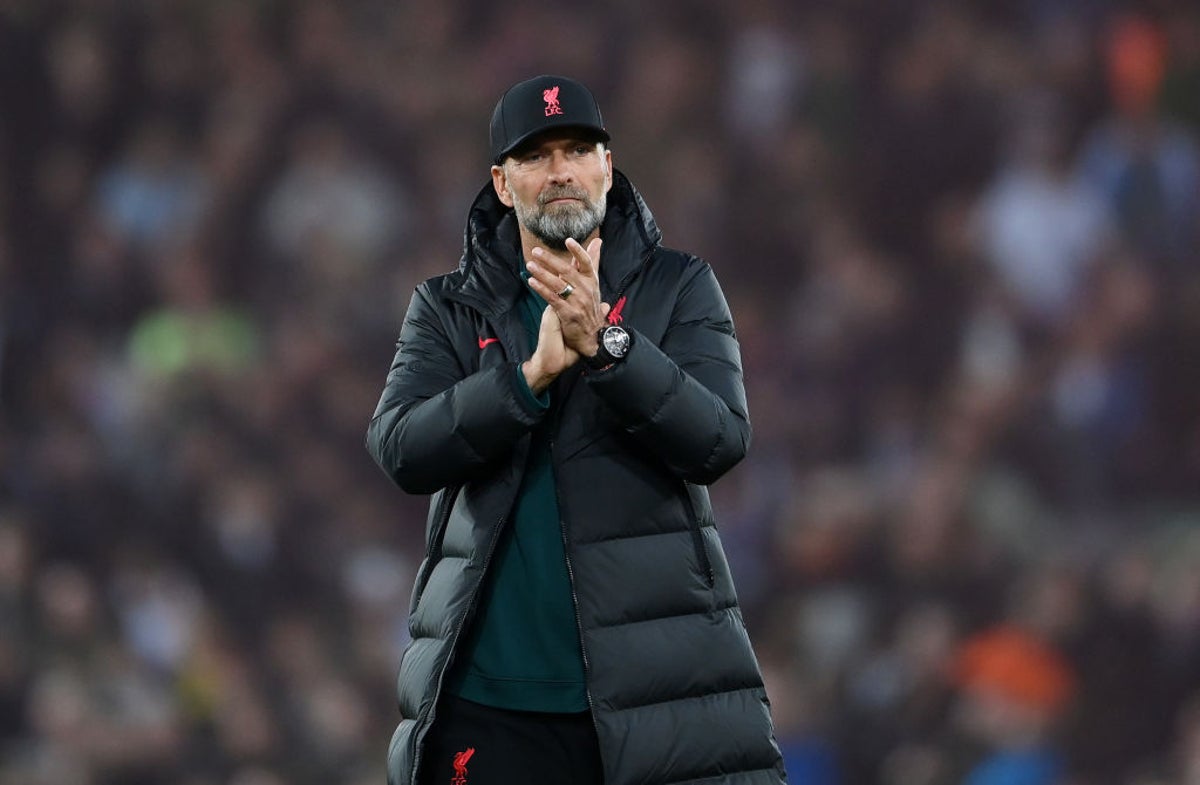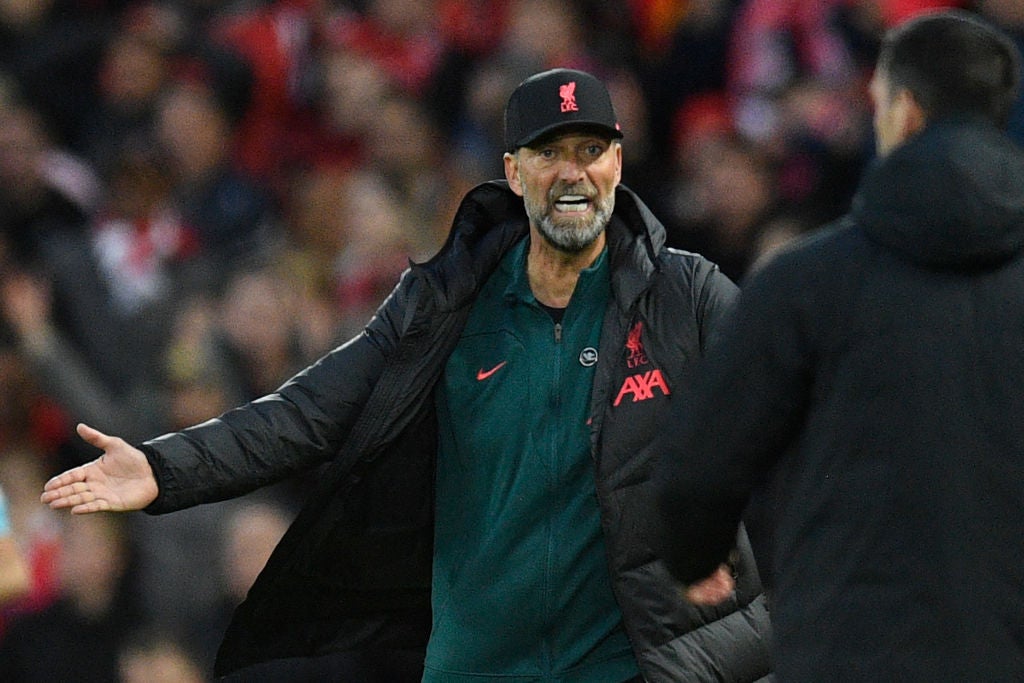
A couple of days after losing his cool, Jurgen Klopp kept calm. There were greater grounds for an outburst; there are worse things in life than the foul by Bernardo Silva on Mohamed Salah that went unpunished, resulting in Klopp screaming in the face of the assistant referee Gary Beswick and being sent off for the first time in his seven years at Liverpool.
Less than 48 hours later, he was relaxed. When a question started with the words “you deserve,” Klopp interjected “a red card”. If he is yet to receive his ultimate punishment from the FA and will be on the touchline against West Ham on Wednesday - he has until Friday to respond to an improper conduct charge - the more serious allegation came after the game and was made in private.
A suggestion was made by Manchester City – or one employee of the club, anyway – in unattributed conversations that Klopp’s pre-match comments about the spending power of Paris Saint-Germain, Newcastle and City were “borderline xenophobic”.
In reply, he would have been entitled to cite his status as an internationalist who has long managed players from many countries.
He is famously a critic of Brexit and its narrow nationalism, has championed African players and been a supportive presence in the careers of Muslim footballers, Mohamed Salah and Sadio Mane among them. He would be entitled to take legal action about such defamatory remarks or, at the least, to say that if someone felt that about an answer in a press conference when Klopp made no reference to race or nationality, they could at least have the courtesy to put their name to the quotes.
But Klopp had sufficient confidence in who he is, what he had said and thought that he shrugged it off; if shots were fired at him, he felt they were wildly off target. “In this specific case, I don’t feel it at all,” he said. “I know myself. And you cannot hit with something which is miles away from my personality. If I was like this, I would hate it. I would hate myself for being like this.
“I have said a lot of times things that were a little bit open for misunderstanding. I know that. Not intentionally, just sometimes you say things and you think, ‘Oh my God, It can be interpreted like this’ but this is not one of these moments. Absolutely.”
He had been accused of inflaming the situation by City, but this was an attempt to avoid pouring fuel on the fire.
Klopp could have mounted a more vehement defence; often eloquent, he had declined to answer the first question where xenophobia was mentioned. If it showed he is comfortable in his skin, he also displayed a willingness to admit when he was wrong.
He had visited referee Anthony Taylor and the officiating team after Sunday’s match, but not to continue a touchline rant. “We have a completely open discussion,” he explained. “What we say stays in the room but it was a calm talk. I apologised to the assistant, of course.”
His post-match analysis has extended to his own conduct. “In my mind it was not that long [he shouted at Beswick] but when you saw the pictures, it looks like I was stood there five minutes,” he added. “I went there and it was not disrespectful, I was just shouting ‘how can you not give a foul?’ But with my face, it was a problem.”

Then came the unexpected problem of a sudden smear. It can be the nature of Klopp’s job that views are put to him to respond; he had sounded more aggrieved last week about Dietmar Hamann’s assertion that Liverpool had lost their ‘spark’ than about an isolated opinion that, privately, he probably finds offensive.
He could have been forgiven for reacting with bemusement, let alone anger. But after a measured response to an attack on his reputation, Klopp has footballing problems to confront.
The damage to Liverpool came not just in the form of a verbal attack on the manager; Diogo Jota’s calf injury means he faces months on the sidelines at a time when Luis Diaz is already out. Klopp, whose political allegiances are famously left wing, has to find a left winger.







